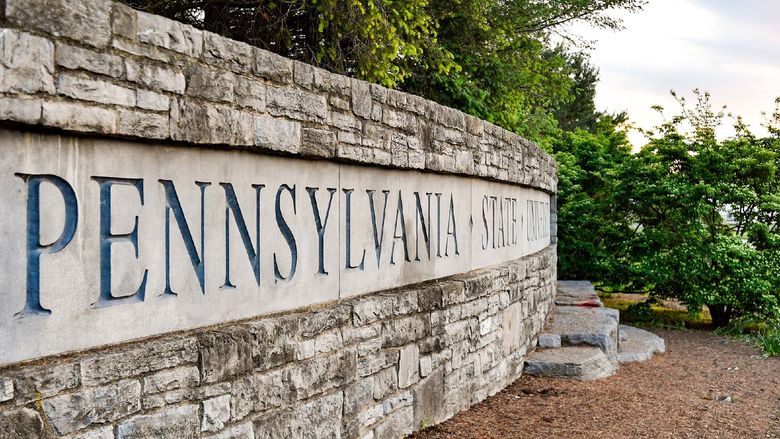
MIDDLETOWN, Pa. — Many Pennsylvanians are “vaccine hesitant,” indicating that they probably or definitely will not receive the coronavirus vaccine, according to a recent survey conducted by the Center for Survey Research at Penn State Harrisburg’s Institute of State and Regional Affairs.
Vaccine hesitancy varied by several key demographics, including race, age and region. Addressing these differences may be crucial for the next stage of the commonwealth’s vaccination effort.
Data were collected from 1,044 adult Pennsylvanians via web from February 23 to April 20.
Tim Servinsky at the Center for Survey Research explained, “Vaccine hesitancy is highest in Pennsylvania’s rural areas, among young people and those with lower levels of education and household income, and within communities of color. With the vaccine more widely available, providing education on the vaccine’s benefits and ensuring that the message reaches these vaccine-hesitant groups will be essential in reducing the pandemic’s lasting effects.”
The spring 2021 Lion Poll, administered by the Center for Survey Research, aimed to explore Pennsylvanians’ experiences with and attitudes toward the coronavirus pandemic using statewide representative data. The latest release of survey data includes results about Pennsylvanians’ vaccination statuses and intentions. Of Pennsylvanians polled, 28.1% had already been fully or partially vaccinated against the coronavirus, and another 46.8% indicated that they planned to get the vaccine. However, 25% of respondents said that they definitely or probably would not get vaccinated.
While political affiliation was strongly related to vaccine hesitancy (Democrats had by far the lowest vaccine hesitancy), several other important demographic differences were revealed in the Lion Poll’s data. Vaccine hesitancy was lower among older age groups: 32.8% of respondents between the ages of 18 to 34 did not plan to get the vaccine, compared to just 13.8% of those 65 or older. Respondents in rural counties were more vaccine-hesitant than those in urban counties, with vaccine hesitancy being the highest in the Southcentral (33.1% vaccine-hesitant), Northeast (32.6%), and Northwest (30.8%), Department of Health regions.
There were also significant differences in vaccine hesitancy by race. Black and Hispanic Pennsylvanians had the highest vaccine-hesitancy rates in the commonwealth, at about 35%.
“We have already seen communities of color disproportionately impacted by the pandemic,” Servinsky said. “Lower vaccination rates among these communities could reinforce these existing imbalances.”
As of April 13, all Pennsylvanians were eligible to receive the coronavirus vaccine. Now public health authorities will be tasked with reassuring those who are cautious of the vaccine and encouraging them to sign up. Reasons for vaccine hesitancy will be explored further in upcoming data releases from the Lion Poll.
In addition to COVID-19 vaccination, the spring 2021 Lion Poll also examined Pennsylvanians’ concerns about and attitudes toward the coronavirus, perceptions of and trust in government leaders, sources of coronavirus information, changes to daily life, impact on mental health, and testing. The collected data — in conjunction with data collected in the spring and fall 2020 Lion Polls — provide snapshots of COVID-19’s sustained impact on Pennsylvanians, allowing government leaders, medical personnel, and policy experts to make informed, evidence-based decisions as they manage the ongoing pandemic.
About the Lion Poll
The Lion Poll is an omnibus survey conducted by the Center for Survey Research at Penn State Harrisburg’s Institute of State and Regional Affairs (ISRA). A total of 1,044 self-administered web surveys were completed by adult Pennsylvanians between February 23 and April 20, 2021. The Lion Poll used a quota-based invitation system to produce a final dataset that is representative of Pennsylvania’s population by region and, separately, by age/sex combined categories. The Lion Poll’s margin of sampling error is +/- 3.0% at a 95% confidence level. The purpose of the Lion Poll is to provide timely and accurate data to agencies, organizations, and researchers with statewide interests and responsibilities. Sponsors of CSR’s omnibus polls have used their results to track public policy issues; measure general attitudes, awareness, and knowledge of their organizations; and measure satisfaction with organizational services and performance.
For more reports related to the COVID-19 pandemic, visit ISRA’s COVID-19 reporting page. For more information about the Lion Poll, visit the Center for Survey Research at Penn State Harrisburg or contact Tim Servinsky at the Center at 717-948-4323 or [email protected]. See the complete Lion Poll methodology here.



